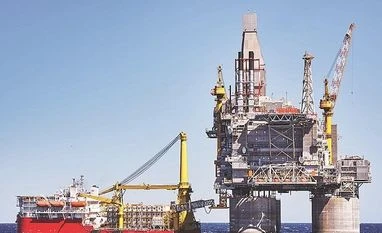Oil prices rose 4 per cent in choppy trading on Wednesday, but concerns remained about rising crude production and weakening global economic growth which could hurt demand for oil.
Brent crude futures rose $2.38 to $56.18 a barrel, a 4.4 per cent gain, by 11:27 a.m. EST (1627 GMT) after earlier falling as low as $52.51. US West Texas Intermediate (WTI) crude futures rose $2.09 to $47.50 a barrel, a 4.6 per cent gain, after sinking to $44.35.
"Given the high levels of price volatility we've witnessed over the last month, a $2 daily move isn't really anything other than signs we continue to have price volatility," said Gene McGillian, vice president of market research for Tradition Energy in Stamford, Connecticut.
Oil futures were buoyed by some gains in US stocks, with the Nasdaq Composite turning positive after earlier losses. Crude futures have recently tracked stocks on Wall Street.
However, disappointing manufacturing data from China earlier added to ongoing concerns about a slowing global economy and increased output out of countries like Russia.
China's factory activity contracted for the first time in over two years in December, highlighting the challenges facing Beijing as it seeks to end a bruising trade war with Washington.
More From This Section
"The manufacturing survey data out of China this week is particularly negative for crude oil, as it goes to the heart of the key demand center for the market," said John Kilduff, a partner at Again Capital Management in New York.
Worries about an economic slowdown and excess supply dragged oil prices from multi-year highs reached in October 2018. Crude futures ended 2018 down for the first year since 2015.
Russian production hit a post-Soviet record in 2018, figures showed on Wednesday. Other data showed US output reached a record in October and Iraq boosted oil exports in December.
Surging shale output has helped make the United States the world's biggest oil producer, ahead of Saudi Arabia and Russia. Oil production has been at or near record highs in all three countries.
Signs of rising production illustrate the challenge facing the Organization of the Petroleum Exporting Countries and its allies, including Russia, which are seeking to prop up the market with a supply cut of 1.2 million barrels per day.
However, the energy minister for the United Arab Emirates, an OPEC member, said on Tuesday he remained optimistic about achieving a market balance in the first quarter.
)